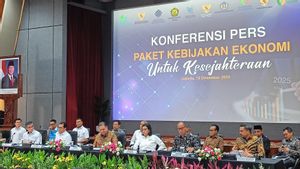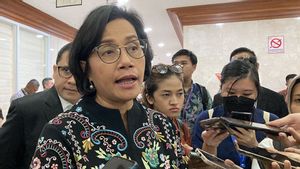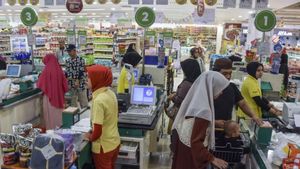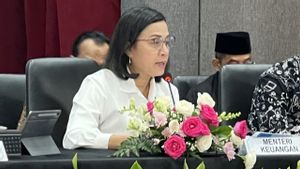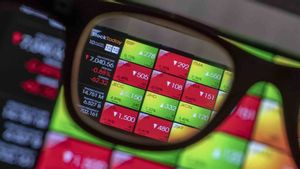JAKARTA - The government has officially announced that it will continue to increase the Value Added Tax (VAT) rate from 11 percent to 12 percent as of January 1, 2025.
Just so you know, the decision was announced by the Coordinating Minister for Economic Affairs Airlangga Hartarto with Finance Minister Sri Mulyani at the Economic Stimulus Package Press Conference at the Coordinating Ministry for the Economy Building, Monday, December 16.
In the announcement, the government emphasized that the increase in VAT did not apply to all goods.
The increase is said to only apply to luxury goods and services.
"In accordance with input from various parties, including the DPR, so that the principle of mutual cooperation in which 12 percent VAT is imposed for luxury-categorized goods, we will also comb for the price group for goods and services which are premium category service items," Sri Mulyani said at the press conference.
The announcement is in line with the previous government's statement that the 12 percent VAT rate is applied only to consumers who buy luxury goods.
"We have been given an explanation [increased] that VAT is a law, yes we will implement it, but selective only for luxury goods," President Prabowo told reporters at the Merdeka Palace, Saturday, December 7.
Responding to this, Bright Institute Research Director Muhammad Andri Perdana assessed that the announcement was not less than a public stupid because the increase in VAT would still be applied to all goods, even the type of goods that would be charged with VAT actually increased.
"The fact is that this increase is not reducing the list of products that will be subject to an increase in VAT, but in fact it will increase," Andri said in a written statement, Tuesday, December 17.
The basic items mentioned are exempt from VAT, such as rice to public transportation, in fact, so far they have been categorized as goods that are not burdened by VAT according to Government Regulation (PP) Number 49 of 2022.
According to the PP, certain goods that are not burdened with VAT are divided into two types, namely certain Taxable Goods (BKP) that are exempt from the Imposition of certain VAT and BKP that are not collected by VAT/VAT and PPnBM.
The items classified as certain BKPs and exempted from VAT Imposition include polio vaccines, COVID-19 vaccines, textbooks, holy books, construction services for worship purposes, to products related to national disasters.
Meanwhile, those classified as certain BKPs that are not collected by VAT/VAT and PPnBM include basic necessities (except cooking oil), marine & fishery products, machinery & factory equipment, livestock, lips & feed, owned flats, silver grains & bullion, electricity below 6,600 VA, clean water, mining goods, and sugar consumption.
Various items have not been burdened with VAT even before PP Number 49 of 2022 was issued.
"The goods released by VAT have been regulated since at least PP 146 of 2000," said Andri.
According to Andri, with this new policy, some of these items that were not previously burdened with VAT are now directly subject to a tariff of 12 percent.
"Products such as premium rice, salmon, electricity above 3,500 VA, VIP hospitals, education services, and others that were considered premium, previously 0 percent VAT, are now charged with 12 percent," he explained.
Andri said that these products were previously in the same category as certain BKPs that were not burdened with VAT, but now only non-premium ones are VAT-free.
"So this is what is heralded as VAT only for luxury goods. Even though all the goods in this category have been VAT chapters from the past," he explained.
BACA JUGA:
On the other hand, Andri said that he also doubted the narrative mentioned by Minister Airlangga regarding the government which would suspend the increase in VAT on Basic and Important Needs Goods (Bupokting) as part of a stimulus package for low-income households.
According to Andri, only three items were suspended from the increase in the package, namely wheat flour, oil, and industrial sugar.
"This is not the tariff that is not increased, but the increase in taxes is borne by the state or in other words DTP (Government Borne). So, the VAT rate is still 12 percent, but the government pays 1 percent. We don't know how long the state will continue to bear VAT for these three products," said Andri.
The English, Chinese, Japanese, Arabic, and French versions are automatically generated by the AI. So there may still be inaccuracies in translating, please always see Indonesian as our main language. (system supported by DigitalSiber.id)



